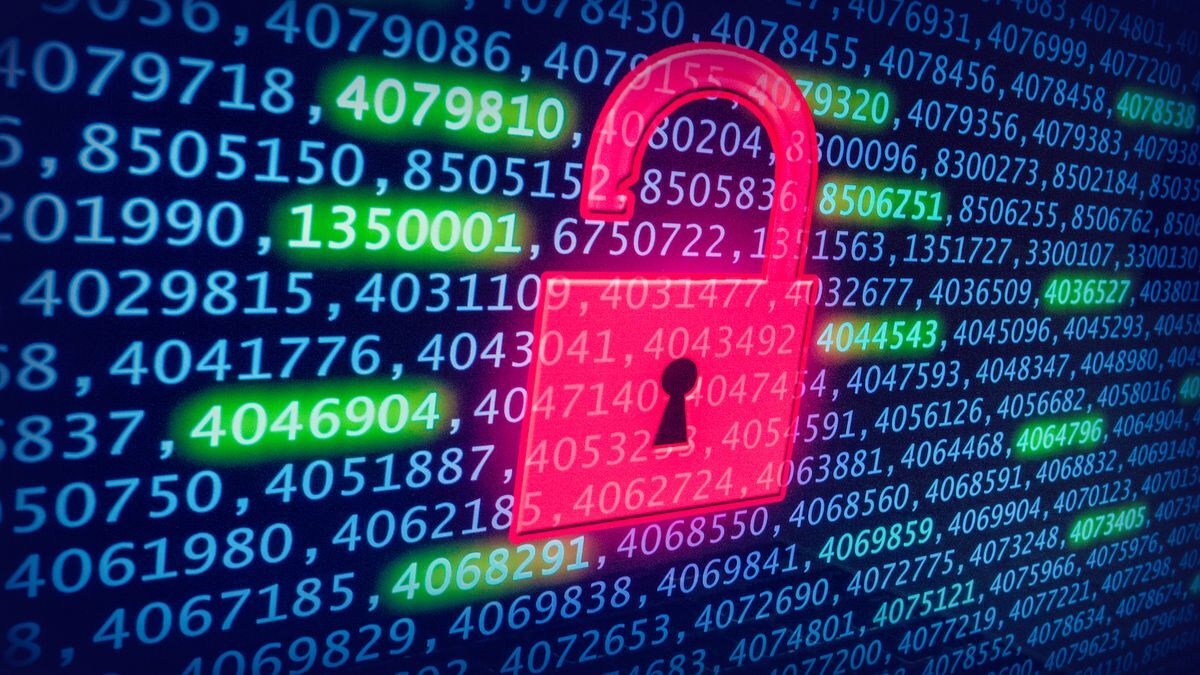Is there a simple way to find out if your Information was in this leak, and what information it is? I use haveibeenpwned for leaks linked to my email address, but from I read in this article, it’s not linked to my email address.
So how do I found out if my data was leaked without paying for a credit monitoring service?
We got notified by email from the credit monitoring our credit card provides.
Who TF is “National Public Data?”
A company not dumb enough to store anything in the EU, that’s who. They’d be in real trouble now! Phew.
You’re kidding, right?
the U.S. and other countries “around the world”
meaning, for those of us living on other planets, we are completely safe … such a relief ! /s
It’s best to say around the world just so who ever is reading it doesn’t think it region specific.
For example, they could say “the U.S. and other countries in the western hemisphere.”
How do you like : “worldwide (including self centered U.S.A.)” 🤣 ?
The other way works better since National Public Data is based in Florida and because of the name of the company. If it said “International” instead of “National” the readers would assume it is international data.
Based on the location, name of the company, and the breach mentioning social security numbers, stating the US first is the most logical.
This is why I don’t go to the National House of Pancakes.
This explains why I’ve been getting so many Indian scam calls the last few days.
It sounds like a bad breach, and I’m not arguing against that. I just want to point out my doubts that there were ever 2.9 billion Americans since the founding of the nation, let alone since social security numbers became a thing. Maybe if I bothered to read the article, it would make more sense.
Okay, but I’m not sure how revelant that is. The article doesn’t say only Americans were affected, it says the exact opposite.
[…] this data likely comes from both the U.S. and other countries around the world.
Like I said, I didn’t read the article, but only Americans would have social security numbers.
Social security numbers being involved in a breach does not mean that the breach only affects Americans. Some records might not have an equivalent ID number associated with them at all, and some records could have similar ID numbers from other countries. They also list current address as part of the data leaked but the fact many people don’t have a current address didn’t seem to cause you any confusion. The original source lists “information about relatives”, if that was in this title would you have assumed only people with living relatives were included?
“I didn’t read the article” is a poor excuse when you’re commenting on the believability of the article. What happened here is you saw an article, immediately assumed it was about the US, realised that doesn’t make any sense, then dismissed the article without even bothering to check because the title doesn’t fit the US exclusively. It’s crazy to me that you wouldn’t even consider the fact it’s not an exclusively US-based leak.
I mentioned the not reading the article so people would not waste their time citing facts from the article that may explain the headline that suggested billions social security numbers were leaked. I made no assumptions about missing addresses, as the headline didn’t mention anything about missing addresses. I even mentioned that the event the article discussed was probably pretty bad – definitely not a negative against the article’s believability. I’m only guilty of judging a book by its cover, and in an existence of limited time, nobody has time to do any more than that except for limited exceptions. I did not choose to make this article an exception. The headline was mathematically deceptive, and my comment was about that. Nothing more.
If you see an article highlighting a breach of social security numbers and don’t assume it’s about the U.S., that’s crazy to me.
There’s something like 330 million Americans currently alive, give or take. Social Security began in 1935, so that’s 89 years ago. For the sake of making the math easy for a dumb Lemmy comment, let’s figure the population at the time was two thirds of what it is today at 220 million, and we can figure that within the margin of error virtually all of them are dead. Yes there are some Americans between the ages of 90 and 111 but they likely didn’t have social security numbers as children; the practice of assigning a SSN at birth happened later when they tied it to a tax credit for having kids; at first you got a SSN when you got your first job so anyone who was under the age of 15 or so in 1935 wouldn’t have been given one.
So let’s figure 220 million Americans who have since died, and 330 Americans who are still alive, have held social security numbers. That’s 550 million SSNs total. Rough back of the napkin math.
Why guess at the 1935 pop instead of just looking it up?
It was about 127 million.
Because it’s a dumb Lemmy comment.
The SSN itself is limited to under 1 billion possible permutations anyway because the format is 9 total digits. (3 digits hyphen 2 digits hyphen 4 digits.)
And if I recall they also have something weird with the state you were born roughly corresponding to which 3 digit prefix you’re issued. Obviously that isn’t purely true either because that would only give you about 1 million unique numbers per prefix.
Either way they’ve gotta be close to the theoretical maximum of the format without recycling numbers.
Lol, yeah “National Public Data” has records of over 3 billion people going back 30 years and these people live all over the world, so it seems.
With a breach of this size, I think we’re officially at the point where the data about enough people is out there and knowledge based questions for security should be considered unsafe. We need to come up with different authentication methods.
Private keys for everyone.
You get a private key! And you get a private key! And you get a private key!
Indian accent: Hello, this is Microsoft support. Your private key is being hacked and you need to give it to us immediately for safe keeping.
WCGW?
Passkeys. They’re amazing.
Until you realize Apple allows the iPhone to airdrop them. Ugh.
Tying a password to a browser or device isn’t going to make it any easier. Use a password manager and set unique string passwords for everything. If the app supports it, use FIDO physical keys instead of Passkeys
… passkeys basically do all this without you having to know how. Your device /is/ the physical key and /you/ are the secondary auth. It honestly doesn’t get any easier for the user.
What options are there for migrating passkeys to a new device? Easy to lock you into that iPhone and you must use their migration tool when you upgrade. Or I just carry it on my keychain, no vendor lock in.
3rd party password managers are already adding passkey support. Passkeys isn’t an Apple only security technology. FIDO has its place but passkeys is the future for most people like it or not.
Do I need a subscription service for this passkey supported password manager? Or I can just buy a hardware key that can be used on my phone or any device, password manager supported or not. Seems like the freedom and portability of a physical key, like a key to your home or car makes a ton of sense.
Passkeys are based on and supported by the FIDO alliance.
You don’t need a subscription as you well know since you know what they’re based on. And I meant FIDO physical keys as you were alluding to. Why would I ever want another device to use with a device that already has biometric auth? That last a barrier of entry that’s too high for most people.
Even better would be to use certificates instead of passwords. What if every website gave you a certificate signed by them, and you store that in your password manager automatically.
Maybe that’s what passkeys are… Haven’t read up on them at all.
I really wish SQRL had taken off. It’s a lot like pass keys, but it used a central certificate to mint per-site certificates (along with per user per site certs if memory serves) and had proper methods of rolling it in and rotating the keys assigned to your account.
Basically with passkeys you have a public/private key pair that is generated for each account/each site and stored somewhere on your end somehow (on a hardware device, in a password manager, etc). When setting it up with the site you give your public key to the site so that they can recognize you in the future. When you want to prove that it’s you, the website sends you a unique challenge message and asks you to sign it (a unique message to prevent replay attacks). There’s some extra stuff in the spec regarding how the keys are stored or how the user is verified on the client side (such as having both access to the key and some kind of presence test or knowledge/biometric factor) but for the most part it’s like certificates but easier.
Start using Yubikeys and telling companies that don’t support them to support them.
We have different authentication methods. The hard bit is persuading people to use them.
Before people can be persuaded to use them, we have to persuade or force the companies and sites to support them.
Pirate keys for sure. Not using one is just asking for a stranger to grab your booty.
I want a stranger to grab my ass sometime
But I enjoy a booty grabbing.
Pirate keys for sure.
Arrr… SA to ye all!
“Please enter your full name, address and SSN to check if you were exposed!”
Oh well I feel at this point every man woman and child already had this done to them in United States and our government not doing shit about it.
Stack on another “Free monitoring, 2 years”
Just got this bullshit offer from Ticketmaster for one of their breaches and they are only offering 1 year free credit monitoring.
I read “free credit monitoring” as allowing your name to get on another list to be sold.
Yeah not sure I even care enough to take advantage.
Just freeze your credit. It is the simplest and easiest solution. It sucks, but it seems to be the best utensil to eat the shit sandwich we’ve been fed.
It doesn’t even suck that bad. Last time I had to unlock mine, I saw that the previous unlocking had been two years earlier. Each time I have to do it, I set an end date and it automatically relocks. Whole process takes maybe 10 minutes for the big 3 credit bureaus.
Don’t worry. Their is a service that monitors your information that you give credit monitors. You just have to give them your information.
And I’m sure they’ll delete it in two years so you’re not included in the breach 3 years from now 🙄
It’s better than the previous class action which got you nothing but a slight discount on a future Ticketmaster purchase to a very select number of concerts.
What if this was just a scheme to get everyone free monitoring
whoa
If I get to use them consecutively, I’m good for a few lifetimes.
Put a credit freeze on all 3 credit agencies.
deleted by creator
Hi Steve. Have you heard from Tom? Been a while.
deleted by creator
This one is way more than just the US.
Is this why I got the latest scam email saying I need to pay $4k in bitcoin else a video of me wanking would be leaked.
How about you send it to me instead and I’ll pay you the 4k
Ok
Oh shit sorry. I must have accidentally sent that email to the wrong person. I meant to send that to my dad.
There are only 1 billion SSNs possible with 9 digits, and at most around 350M living people who have them (the US population). This breach is international but SSN is a US thing.
Do TINs overlap with SSNs? Because businesses and non-citizen taxpayers have TINs instead of SSNs, but they’re used just the same.
This I don’t know. I remember reading that around 70%(?) of SSNs have been allocated, and there are enough left for a few decades. No idea whether corporation TINs come from that. I believe non-citizen taxpayers get similar SSNs to citizens. IDK if they pay into social security and collect benefits the same way.
And not all 9-digit numbers are used, so there are fewer than a billion. It sucks when organizations store them because the search space is so small it’s relatively easy to unhash them in a stolen database.
A lot of businesses use the last 4 digits separately for some purposes, which means that even if it’s salted, you are only getting 110,000 total options, which is trivial to run through.
9 digit social security number specifically might be, but a unique number tied to you that is often used as identification when it really shouldn’t isn’t, it’s a shitshow that has been implemented in many countries around the world.
The Finnish version was called an SSN originally for example, though now its a “henkilötunnus”, personal identity code.https://en.wikipedia.org/wiki/National_identification_number
And again they will fail to punish the company responsible for protecting this data for their criminal neglience.
Because that might damage shareholder value
It really should. The shareholders did profit from not investing in security until the incident. Let them suffer.
Good god. Thats like, every person that has ever used a computer probably. Fuck.
Dang, that’s quite a few people. Maybe we can stop linking our identity to a simple number in the US sometime? That would be swell.
How did this company leak 2.9 billion people’s info, including SSNs, when the population of the US is only ~350M?
Is “National Public Data” collecting info on everyone internationally? So many questions…
I just assume ssn is for a us audience and its worlwide with equivalent numbers but who knows. I mean there are only 8 bil on the planet so thats like everyone except maybe china, india, and africa
When applying to a US government position with a certain security clearance, they will do background checks of you, your family and extended family, if need be.
And I’m sure that can be the case for any employer who needs background checks. That being said, I also suspect some of these people in the database are dead.
Read the article? Your questions are answered there.
Otherwise, how would the republicans get enough votes.

















